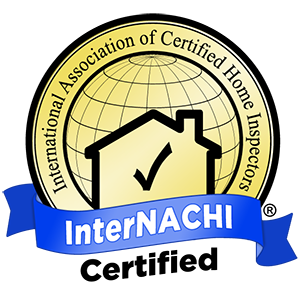Water affects nearly every level of your home from the rain that falls on the roof to the groundwater under the building. Water is a solvent that over time breaks down what it comes in contact with. It is also vitally necessary to our everyday life. Plumbing and piping must be in good order to make sure water is available to use. But if the system is damaged, water can also cause significant damage. A thorough home inspection will find problems so you can fix them before they damage your home.
Water as a Solvent
Water is known as the universal solvent which means it has the capability of dissolving more substances than any other liquid. This is great for our bodies because water contains minerals and nutrients that are necessary for life. It can also contain chemicals that are not so good for us or our homes. Additionally, water is erosive meaning it can break down substances over time. Think of the Grand Canyon which was created by water erosion. The streams and rivers took with them pieces of the ground they flowed through eventually creating that great chasm. Therefore, water is both necessary and destructive.
Water and Your Home
When you think of your home’s water system, the first things that come to mind are usually sinks and faucets, toilets, and showers. These are the interfaces where we interact with the water but there is much more to this system. Each of these interfaces is connected through a series of pipes to both a source where the water comes from and a waste system where the water (and anything it picks up) goes. In addition, you have water provided by nature in the form of rain and snow. This natural water source is also important because it lands on your roof, runs down your land, and collects in the soil or runs into the storm drains or ditches. You may also need to consider occasional flooding if you live near a stream or river or other water sources.
Checking Outside
Your home inspector will usually start by walking around your property. They are getting the lay of the land to see which way your outside water drains. If the land slopes towards the house, you are more likely to have issues with the foundation. Windows are another point where water damage can occur. Water can get under the sill and damage the framing. Sometimes this has been painted over without first being repaired which can lead to rot. If your paint is cracked, it opens an avenue for water to enter.
If your home has siding, there is a potential for unseen damage beneath it. Inspectors look at the places where the panels come together to determine if there are any cracks where water could get in. They also look at door thresholds which sometimes can cover unnoticed water damage, especially with a metal threshold. They look at outside faucets for visible signs of leakage usually caused by freezing and thawing.
Checking Inside
Inspectors will start inside by looking under the sinks in the bathrooms and kitchen and around the washers. They look for any water stains or other signs of damage. They check the caulking for cracks or splits and smell for any moisture that could lead to unseen damage or mold. Water damage can also affect floors by causing wood floors to swell and buckle. Floors that show staining are also suspect. Carpeted floors may hide damage from water that seeped into the pad or subfloor beneath.
Walls and ceilings may also show stains from water leaks in the pipes or around windows and doors or from above. In the attic, stains are clues that the roof leaks. In a multi-story dwelling, stains could be from pipes in the story above. In a basement or crawlspace, stains could indicate that the groundwater is seeping through the foundation which can eventually challenge its integrity.
Your home inspection will look closely at the system within your home including water pressure, checking the pipes, connectors, and fittings. They can also inspect your system outside for breaks by running a camera through the pipes. They look for signs of leakage in the roof and signs of seepage in the basement or foundation. Be aware that they don’t usually look at anything that is behind a wall unless there is obvious damage.
If you are looking for a great home inspector in the Grand Junction CO area, take a look at Pro Home Inspections, LLC. We are licensed, bonded, and certified by the International Association of Certified Home Inspectors. We value honesty, integrity, and accountability and will provide you with a thorough inspection report.
https://www.waterdamagerestorationaz.com/water-damage-home-inspection


.png)
